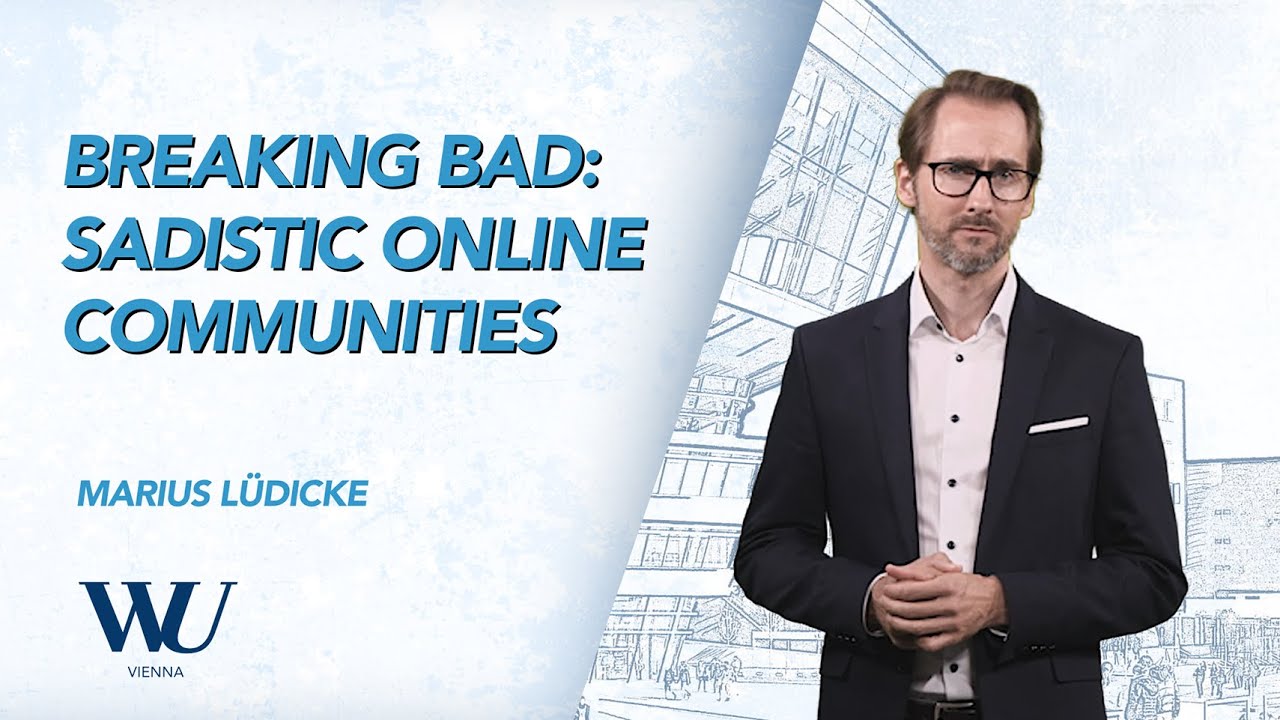Marius Lüdicke

Online hate: When digital…
An international team of…
Online communities are well suited for discussing shared interests or specific topics, finding inspiration, or for collective learning. In some cases, people are also looking for a sense of belonging, solidarity, and empowerment. In any case, the potential added value people find in online spaces cannot be denied.
So, how is it that some online communities turn from open discussion spaces into hostile environments? What mechanisms underlie these dynamics, which sociologists refer to as “brutalization”?
An international team of researchers led by Marius Lüdicke have investigated why some digital communities descend into hostility. They based their analyses on data from a British dance music community. Looking at online interactions over a period of almost 20 years and interview data, the researchers retraced the development of an open online community into an emotional minefield. In our video, Marius Lüdicke explains the dynamics that can trigger and drive brutalization.
![[Translate to English:] Foto von Marius Lüdicke in WU-Gebäude, 2025](/fileadmin/wu/_processed_/d/b/csm_Marius_L%C3%BCdicke__WU_Wien_09-2025_b76e38916e.jpg)
Marius joined WU in September 2023, and he raves about several things that make Campus WU special: the sun-drenched corridor leading to his office in the D2 building and the staircase on the fifth floor of the Teaching Center.
What online communities are you involved in in your free time?
“Actually, I’m not active in any online communities in my private life,” Marius Lüdicke reveals in a personal conversation. “I trying not to spend my entire days on digital devices. I have very critical views of social media and their effects on individual behavior and, subsequently, social cohesion.” Bad behavior and insults are generally downplayed in the digital space because they are “only posted online anyway” and therefore “not meant to be taken seriously.” However, the hurt felt by victims of digital harassment is real, and so is the change in tonality in how people treat each other day by day, which is even reflected in socio-political interactions on a global scale. “One of my goals is to raise awareness of the role social media play as drivers of collective behavioral change and, consequently, the social climate change we’re witnessing,” explains Lüdicke.
Sadistic entertainment: Why not analyze Trump?
When asked whether the researchers ever considered the social media channels of celebrities as potential objects of research for their study, Lüdicke responds with a clear “yes and no.” The interactions on the accounts of notoriously sharp-tongued politicians are open to the public and definitely exhibit brutalization dynamics, but the idea of the study was to focus on the relationships and mechanisms that exist within a closed online community based – at least initially – on a sense of community and shared norms.
A criterion was the absence of moderators such as those usually monitoring the discourse on online newspaper forums, for example.
What’s your advice to people in online communities where the tone is going downhill?
Without moderators, it’s difficult to stop brutalization dynamics. Educating users about transgressions and calling upon them to behave appropriately are the only tools available to prevent discussions from going off the rails. Incidentally, the tendency toward sadistic entertainment, clan wars, and popular justice is not gender-specific: Toxic forum environments are not exclusively a male domain.
Do electronic beats also accompany you in your life off campus?
“Privately, I listen to everything across the board: from classical music, 90s music, Austrian pop such as Wanda and Bilderbuch, to German and gangsta rappers like Capital Bra or Nina Chuba. And, of course, I like techno and electronic music.” That’s the reason why this renowned academic participated in the Berlin Love Parade and the Street Parade in Zurich.
In yet another twist of his musical inclinations, Marius Lüdicke is a cellist and member of the Salzburger Kulturvereinigung. At the age of 17, he briefly toyed with the idea of going to Münster to study music, but then he decided to pursue his passion as a hobby, playing in the student orchestras of Innsbruck, St. Gallen, and Salzburg.
Do you have a favorite place on or around the WU campus?
Marius joined WU in September 2023, and he raves about several things that make Campus WU special: the sun-drenched corridor leading to his office in the D2 building and the staircase on the fifth floor of the Teaching Center. And aside from any particular locations, it’s the bustling life on campus in general that always brings a smile to the face of the head of the Institute of International Marketing Management.
Download the study:
Free download on PURE: Why Online Consumption Communities Brutalize?
Viewable in "Journal of Consumer Research": Olivier Sibai, Marius K Luedicke, Kristine de Valck, Why Online Consumption Communities Brutalize, Journal of Consumer Research, Volume 51, Issue 4, December 2024, Pages 775–796;
Summary of the study (consumerresearcher.com)
Press Release "Digital hate: When online communities turn toxic." 23/09/2025
About the authors:
Marius K. Lüdicke, Professor of Marketing in a Global Economy, WU Vienna
Olivier Sibai, Lecturer in Marketing, Birkbeck, University of London
Kristine De Valck, Professor of Marketing, HEC Paris
